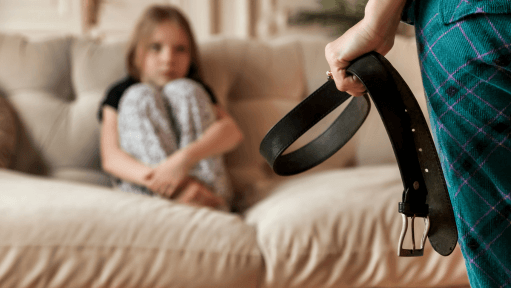
Corporal Punishment in Schools, Homes Illegal; Jail, Fine for Offenders
In UAE, it is illegal to use physical violence or other forms of abuse to discipline a child
Corporal punishment is strictly prohibited by law in the UAE. As debates on the topic gain global attention, questions regarding its legality and ethical ramifications have emerged. Given its diverse cultural makeup and contemporary legal framework, the UAE is thrust into the heart of this discourse. Let's delve into the specifics of corporal punishment laws in the UAE.
Legal Framework: In the UAE, it is illegal to use physical violence or other forms of abuse to discipline a child. This includes hitting, slapping, punching, or any other physical act that causes harm. Parents who engage in physical violence towards their child can face criminal charges, including assault and child abuse.
Article 32 of the UAE's Constitution guarantees the protection of human dignity, and any form of physical harm or torture is considered a violation of this fundamental principle. Additionally, the UAE is a signatory to international treaties and conventions, such as the Convention against Torture and Other Cruel, Inhuman or Degrading Treatment or Punishment, which further reinforce its commitment to prohibiting corporal punishment.
Penal Code: The UAE Penal Code explicitly criminalises any act of physical harm or assault against individuals, including corporal punishment. Article 282 of the Penal Code states that anyone who inflicts physical harm on another person shall be liable for punishment, with penalties ranging from fines to imprisonment, depending on the severity of the offense.
Child Rights: In line with international standards, the UAE prioritises the protection of children's rights and welfare. The country ratified the United Nations Convention on the Rights of the Child (UNCRC), which prohibits any form of violence or abuse against children, including corporal punishment. As such, corporal punishment in schools, homes, or any other setting is strictly prohibited under UAE law.
Recent Developments: In recent years, the UAE has taken steps to strengthen its legal framework to safeguard human rights and prevent instances of abuse or violence. In 2016, the UAE issued Federal Law No. 3 of 2016 on Child Rights, which provides comprehensive legal protection for children and prohibits any form of violence or exploitation, including corporal punishment.
Legal Interpretation and Enforcement: While the legal framework in the UAE unequivocally prohibits corporal punishment, challenges remain in terms of interpretation and enforcement of the law. Instances of corporal punishment may still occur in certain settings, such as schools or households, raising concerns about accountability and oversight.
Corporal punishment is unequivocally prohibited under UAE law, which emphasises the protection of human dignity and the rights of individuals, including children. The UAE's legal framework, supported by international treaties and conventions, reaffirms its commitment to preventing any form of physical harm or abuse and promoting a safe and inclusive society for all.
As the UAE continues to strengthen its legal framework and enforcement mechanisms, it remains crucial for stakeholders, including government authorities, educators and civil society organisations, to collaborate in raising awareness and promoting a culture of respect for human rights and non-violence in all aspects of society.
For any enquiries or information, contact ask@tlr.ae or call us on +971 52 644 3004. Follow The Law Reporters on WhatsApp Channels.